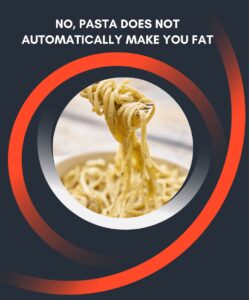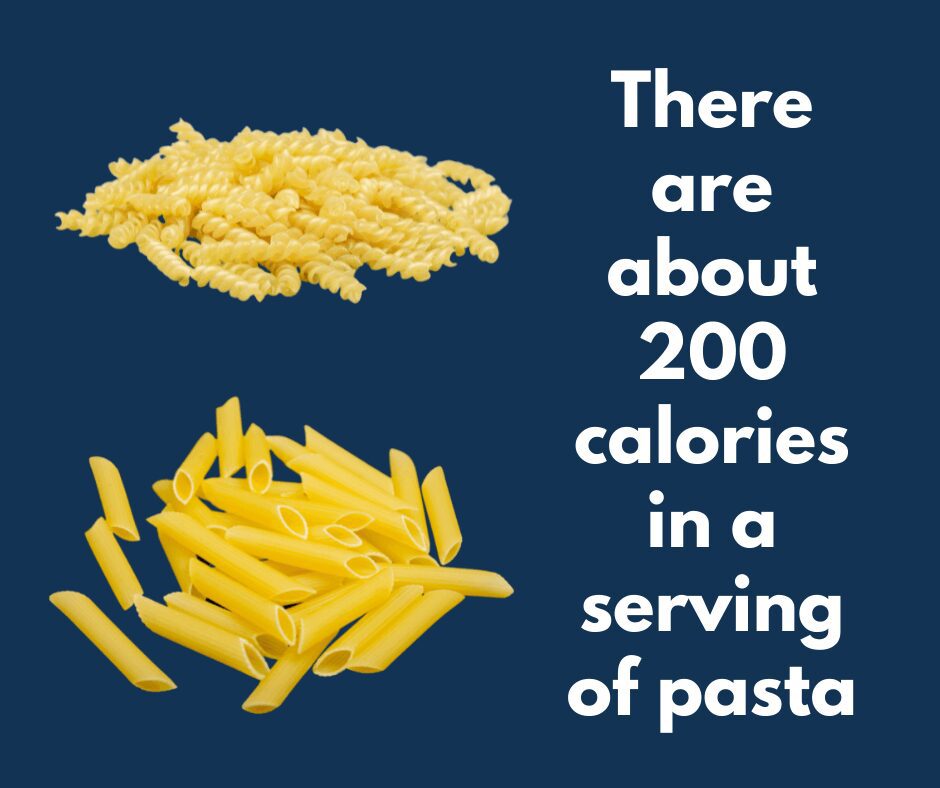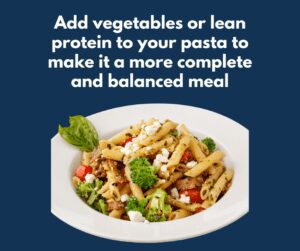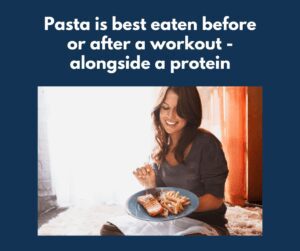Does Pasta Make You Fat?
“I’ve been eating pasta for as long as I can remember.
My mom would always make a big pot of spaghetti and meatballs for dinner and I would always help her cook.
Even now, as an adult, I love pasta. But lately, I’ve been hearing that pasta can make you fat. Is this true?
I did some research online and it seems like there is mixed information out there.
Some people say that pasta is a healthy food because it is high in carbohydrates and provides energy.
Others say that pasta is unhealthy because it contains a lot of starch and can make you fat.
So which is it?”
Does pasta make you fat?

No, pasta does not automatically make you fat.
Weight gain occurs when you consume more calories than you burn off in a day.
If you eat a lot of pasta, you will probably end up consuming more calories than you burn off and this can lead to weight gain.
However, if you eat a moderate amount of pasta and combine it with other healthy foods, it is unlikely to cause weight gain.
In fact, some studies have shown that eating pasta can actually help you lose weight.
How many calories are in pasta?

There are about 200 calories in a serving of pasta.
A serving of pasta is usually one cup, but it can vary depending on the type of pasta and the size of the noodles.
Can pasta be part of a healthy diet?
Yes, pasta can be part of a healthy diet.
When choosing a pasta, it is important to select one that is made from whole wheat or another whole grain.
Whole grain pastas are higher in fiber and nutrients than white pastas.
They can also help you feel fuller for longer and may aid in weight loss.
In addition to choosing a healthy pasta, it is also important to watch your portion size.
A serving of pasta is usually one cup, but it can vary depending on the type of pasta and the size of the noodles.
If you are eating pasta as part of a healthy diet, you should aim to keep your portion size moderate.
You should also add vegetables or lean protein to your pasta to make it a more complete and balanced meal.
Can you eat pasta when trying to lose weight?

Yes, you can eat pasta when trying to lose weight as long as you do so in moderation (to keep your calories in-check), and add some protein and fibrous veggies to those meals (to balance your blood sugar and feel full longer).
Is there a best time to eat pasta on a weight loss diet?
Pasta is best eaten before or after a workout.
Glycogen, which is stored in your muscles, is the body’s main source of energy during exercise.
Eating pasta before working out helps to replenish your glycogen stores and provides you with the energy you need to power through your workout.
Eating pasta after your workout helps your body to recover by replenishing glycogen stores and providing the nutrients needed for muscle repair.
So whether you’re looking to boost your performance or speed up your recovery, pasta can be a reasonable option.

Does pasta make you bloated?
Contrary to popular belief, pasta does not cause bloating unless you’ve got a gluten allergy.
Pasta is made from durum wheat, which is a type of wheat that is higher in protein and gluten.
This makes it an decent source of energy and helps to keep you feeling full for longer.
Durum wheat is also easy to digest, so it is less likely to cause bloating than other types of wheat.
Bloating is often caused by eating too much or too fast, and pasta is a relatively light food that is easy to digest.
So next time you are looking for a hearty meal that will leave you feeling satisfied, reach for the pasta.
Is whole wheat pasta better for weight loss?
One of the age-old questions in the fitness world is whether whole wheat pasta is better for weight loss than regular pasta.
On the one hand, whole wheat pasta contains more fiber, which can help to keep you feeling full and prevent overeating.
On the other hand, regular pasta is made with refined grains that are easier for your body to break down and use for energy.
So which is the better choice?
The answer may surprise you. In a recent study, participants who ate whole wheat pasta lost more weight than those who ate regular pasta.
The researchers believe that this is due to the fact that whole wheat pasta takes longer to digest, which helps to keep you feeling fuller for longer.
So if you’re looking to shed a few pounds, whole wheat pasta may be the way to go.
Pasta can be part of your weight loss diet
When it comes to weight loss, there’s no magic pill or silver bullet.
The reality is that losing weight comes down to a simple equation: calories in versus calories out.
If you consume more calories than you burn, you will gain weight.
On the other hand, if you burn more calories than you consume, you will lose weight.
Different foods have different effects on our bodies, and our exercise and non-exercise activity levels also play a role.
However, at the end of the day, weight loss comes down to calories in versus calories out.
So if you’re looking to shed some pounds, start by tracking your calorie intake and making sure that you’re burning more calories than you’re consuming.
